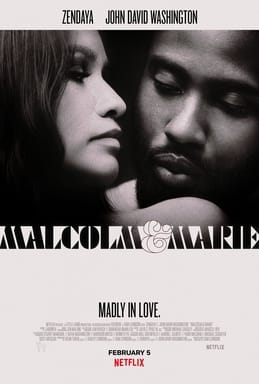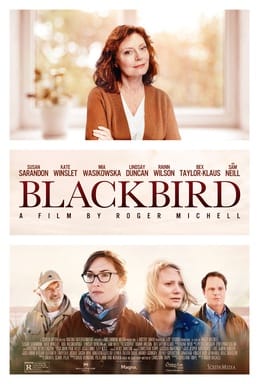Who's afraid of a bit of criticism?—Malcolm and Marie ★☆☆☆☆

Film editor Oliver Weir reviews Netflix's biggest release so far this year: 'Malcolm and Marie'. Directed by Sam Levinson—of HBO series 'Euphoria' fame—Malcolm and Marie is a well-acted tantrum whose titular relationship is a tiring mess of toxicity, and whose attempts at film criticism come across as petulant and insincere.
Malcolm and Marie
★
- Where: Netflix
- When: Streaming Now
- Cost: Netflix Subscription
Malcolm—an up-and-coming director (played by John David Washington)—and Marie—an aspiring actress and girlfriend to Malcolm (played by Zendaya)—come home from Malcolm’s movie premiere. The premiere appears to have gone down well with critics; however, Malcolm forgets to thank Marie in his speech. This faux pas is a manifestation of a much deeper issue in Malcolm and Marie’s relationship, and it is this deeper, more personal issue that we see develop as the movie progresses. So promises the trailer….
What we actually see unfold is a whiny, irritating, pretentious tantrum. Director Sam Levinson clearly had a bone to pick with a particular LA Times review he received about his last film Assassination Nation, and has decided Malcolm and Marie is a fit medium with which he can respond. Suffice it to say his response is a mess of contradictions, a tirade of babyish insults, all dressed up in a pitiable perfume advert monochrome, and topped off with a laughably verbose script whose ‘stick it to the critic’ self-assuredness feels like it was written by someone who would be of interest to one Mr Dunning and one Mr Kruger.
What we actually see unfold is a whiny, irritating, pretentious tantrum
We’ll begin with whiny. At around the halfway point, a review of Malcolm’s film appears online. He is dismayed that the critic reads messages into his movie about race and sex that he did not intend. The biggest problem is Levinson’s endless whinging; he often brazenly disregards the character of Malcolm (and any semblance of realism with the way people behave and speak), using him instead as a mouthpiece for his own insecurities about his status and his filmmaking abilities. Using Malcolm to take a pop at white critics and general attitudes to the work of black artists is not at all objectionable; however, all Levinson does is use Malcolm to take a pop at those who’ve interpreted his own films. While egotistical, this is still not the death-blow; there are certainly ways to respond intelligently and creatively to your own critics through your work. So, does Levinson respond calmly, intelligently, or creatively? Hopefully hearing lines such as: ‘She’s an idiot [referring to the critic]’; or ‘I'm gonna pray fucking hard...that she gets fucking carpal tunnel, until her hands atrophy and cramp and she can no longer write nonsensical fucking garbage like this anymore’; or ‘The fact that the LA Times will hire such a fucking halfwit is beyond me’ will let you in on the answer.
But perhaps I’ve just cherry-picked the worst lines. Well, the real kicker is that the lines Sam Levinson would like me to cite—the more ‘intellectual’ ones—are in fact either woefully empty or laughably pretentious. Read the following line twice for an example of emptiness: ‘She's not looking at the film. The ideas in it, the emotions, or the craft’, and look no further than the line ‘But that's not how you judge film intelligently, by the 600 trillion different choices not made due to an intangible yet purely hypothetical assessment of one's identity’ for dialogic flatulence.
Think Who’s Afraid of Virginia Woolf?...but without the humour, the mystery, or the wit
Having placed himself front and centre of his own movie, it is impossible not to finds oneself preoccupied with Levinson when talking about Malcolm and Marie. However, the film’s only two actors deserve a mention. Despite being given turgid, pseudo-intellectual monologues (monologues that, ironically, Levinson appears to so vehemently dislike—pull the other one Sam), John David Washington does bring a consistent energy and aggression to an otherwise dull offering—an offering akin to Who’s Afraid of Virginia Woolf?...but without the humour, the mystery, or the wit. Although many have voiced their praises for Zendaya, I was fairly apathetic towards her performance. Her ‘authenticity scene’ was very well acted, but apart from that her range of motion is limited to walking down the hall a few times, sitting seductively on various furniture, and occasionally smoking a cigarette—all of which speaks of a talented actress working around a poor screenplay.
Malcolm and Marie’s egoism and arrogance can perhaps be watched as a comedy; however, as that dialogue wears you down and you instead begin to hear the irritating voice of a petulant director, this film more resembles a tragedy. T.S. Eliot was of the opinion that the greatest artists make the greatest critics, I dare say Sam Levinson has proved Eliot quite right: Malcolm and Marie has absolutely nothing sincere or interesting to say about film criticism, and, as a film, it’s absolute tosh.




